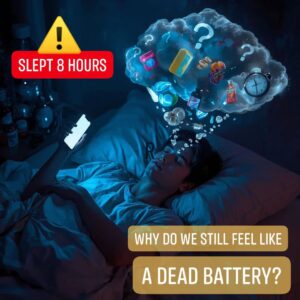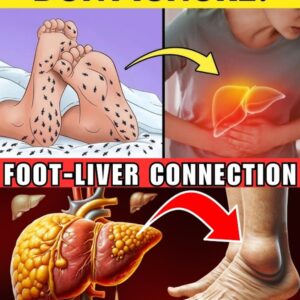You’ve slept a full 8 hours, yet you wake up feeling like a dead battery. This frustrating experience, often described as fatigue despite sleep, affects millions and points to issues beyond just sleep duration. Inspired by health discussions like those on onlyheathmy.co.in, this article explores why you’re still exhausted and offers actionable solutions to recharge your energy, helping you feel vibrant and ready to tackle your day.

Common Causes of Fatigue Despite Sleep
Poor Sleep Quality
Even with 8 hours of sleep, poor quality can leave you drained. Factors like frequent waking, sleep apnea, or restless leg syndrome disrupt restorative deep sleep. A 2021 study in Sleep Medicine found that 30% of adults report non-restorative sleep, leading to daytime fatigue. Using a sleep tracker or consulting a doctor can identify issues like snoring or irregular breathing patterns.
Stress and Mental Health
Chronic stress or anxiety can sabotage sleep quality, causing fatigue despite sleep. The Journal of Clinical Sleep Medicine(2020) notes that high cortisol levels from stress prevent deep REM sleep, leaving you groggy. Mental health conditions like depression also sap energy, even after a full night’s rest. Mindfulness practices or therapy can help manage stress and improve sleep.
Nutritional Deficiencies
Your diet plays a role in energy levels. Deficiencies in iron, vitamin D, or B12, common in 20% of adults per NIH data, can cause persistent tiredness. Processed foods or excessive sugar, as warned in weight loss guides, spike and crash energy. Incorporate nutrient-rich foods like spinach, eggs, or goji berries—linked to kidney health in Chinese medicine—to sustain energy.
Lack of Physical Activity
Sedentary lifestyles contribute to fatigue despite sleep. A 2022 Frontiers in Physiology study shows regular exercise enhances mitochondrial function, boosting energy. Just 20–30 minutes of home workouts, like those recommended for weight loss, can improve oxygen flow and reduce tiredness, making you feel more energized throughout the day.
Solutions to Combat Fatigue Despite Sleep
Optimize Your Sleep Environment
Create a sleep-friendly bedroom: keep it dark, cool (60–67°F), and quiet. Avoid screens 30 minutes before bed, as blue light suppresses melatonin, per Sleep (2020). A calming routine, like reading or meditation, enhances deep sleep, reducing fatigue despite sleep.
Balance Your Diet
Eat balanced meals with protein, healthy fats, and complex carbs to stabilize blood sugar. Avoid heavy meals or caffeine late in the day, which disrupt sleep cycles. Hydration, as emphasized in kidney health articles, also prevents fatigue—aim for 8–10 glasses of water daily.
Incorporate Movement
Daily movement, like walking or yoga, combats fatigue. A 10-minute HIIT session at home, inspired by weight loss strategies, boosts endorphins and energy. Regular exercise also improves sleep quality, creating a virtuous cycle for vitality.
Seek Professional Help
If fatigue persists, consult a doctor. Blood tests can reveal deficiencies or conditions like thyroid issues or sleep apnea. Early detection, as with kidney disease signs, is key to addressing underlying causes and restoring energy.
Recharge Your Life with Energy
Fatigue despite sleep is a signal to look beyond hours slept. By improving sleep quality, managing stress, eating well, and staying active, you can recharge your body and feel confident tackling your day. Start these habits today to transform your energy and live vibrantly.






